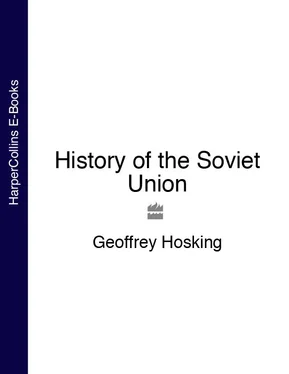1 ...8 9 10 12 13 14 ...33 Throughout September, Lenin, at first from the safety of Finland (a warrant had been out for his arrest since the July Days), then from hiding in Petrograd, bombarded the party Central Committee with letters urging that the moment for the insurrection had come. He cited as evidence the Bolshevik majorities in the soviets, the rising wave of peasant unrest, the intended surrender of Petrograd (which would produce the ‘Paris Commune’ situation), and in the international dimension the recent mutiny in the German Baltic Fleet. Once MRC was in existence, that seemed to him the appropriate instrument for the seizure of power. And indeed, it was on the day after its establishment, 10 October, that he at last persuaded his colleagues on the Central Committee that a rising was ‘on the agenda’.
Even at this stage, however, there were sceptics among Lenin’s closest colleagues, notably Zinoviev and Kamenev, two of the longest standing members of the Bolshevik Party. Their arguments are worth dwelling on, as they represent an important strand in Bolshevik thinking at the time. They maintained that the Bolsheviks had more to gain by working with the other socialist parties in a coalition government based on the soviets, than by going it alone and risking a violent seizure of power. Bolshevik support was rising among peasants, workers and soldiers: they would soon dominate the soviets, and would gain a substantial share of the seats in the Constituent Assembly, whose elections were approaching. Why jeopardize all this by a violent coup, which would alienate everyone? And even if it succeeded, then the Bolsheviks would be left bearing the responsibility alone for the huge tasks of improving the food supply, restoring the industrial economy, and, most difficult of all, either securing peace with Germany or else leading a ‘revolutionary war’ against her. For such tasks a coalition was needed, and, moreover, the Bolsheviks were already in a position to lead it.
Of course, it can be argued that Zinoviev and Kamenev were pleading merely for different tactics , for what became known after the Second World War as the ‘popular front’ policy. Yet major differences of conception underlay their argument. Lenin’s attitude was utopian, even apocalyptic: for him, the Bolsheviks embodied, in some mystical sense, the people, and once they seized power that power would ipso facto be in the hands of the people. Zinoviev and Kamenev, by contrast, were practical politicians, worried about how power could actually be exercised. Probably their views were closer to those of the majority of Bolsheviks in the soviets.
One significant observation they made: ‘Insofar as the choice depends on us, we can and must confine ourselves now to a defensive position .’ That was precisely what, in the event, MRC did, and this fact may have been crucial to the success of the insurrection. For what finally provoked the seizure of power was Kerensky’s action, on the night of 23–24 October, in trying to close down two Bolshevik newspapers and to arrest some Bolsheviks on charges of antigovernment agitation. On the initiative of Trotsky, MRC responded by reopening the newspaper offices, and then, to ensure the safety of the second All-Russian Congress of Soviets, due to open the next day in Petrograd, its troops began to occupy bridges, road junctions and railway stations, moving on to take over telegraph offices and government ministries during the following night. Lenin came out of hiding and went to the Smolny Institute, now the headquarters of MRC, to persuade them not to confine themselves to a defensive operation, but to carry on and arrest the Provisional Government. This is certainly what happened, whether because of Lenin’s influence or from the natural dynamic of events. MRC called in Baltic sailors from Kronstadt and Helsingfors, while Kerensky’s attempts to raise units from the front line were almost wholly unavailing, so low was the stock of the Provisional Government among army officers. In the end Kerensky slipped out of the city in a car to continue his efforts in person. The rest of the Provisional Government was duly arrested in the Winter Palace late on the night of the 25th–26th.
Already on the 25th Lenin felt able to issue a proclamation announcing that power had passed into the hands of the soviets. He did not, however, significantly, identify the Congress of Soviets or even the Petrograd Soviet as the new source of authority, but rather MRC, ‘which has placed itself at the head of the proletariat and the garrison of Petrograd’. He thus specifically located power in the institution where the Bolsheviks had perhaps the greatest weight. When the Congress of Soviets met that evening, a large and influential group of Mensheviks and Socialist Revolutionaries, including most of the members of the executive committee of the First All-Russian Congress of Soviets (back in June), condemned this step as a usurpation and walked out of the assembly, to form a Committee of Public Safety and to try to organize resistance to unilateral Bolshevik rule. A few Mensheviks remained behind, while the much larger number of Socialist Revolutionaries who did so reconstituted themselves as the Left Socialist Revolutionary party, finalizing a break which had existed for some months in all but name.
Now that power was in the hands of the soviets, one might have expected that it would be exercised by the All-Russian Executive Committee (VTsIK), which was elected by the congress to conduct its business between sessions and to hold authority in the soviet movement. This, of course, contained representatives of several socialist parties. Lenin, however, announced that the supreme body in the new ‘Workers’ and Peasants’ Government’ would be the so-called Council of People’s Commissars ( Sovnarkom ), a kind of ‘council of ministers’, whose members would all be Bolshevik. The Left Socialist Revolutionaries were invited to participate, but were unwilling to do so without other socialist parties also being represented.
As a result of the way Lenin and the Central Committee interacted, then, the Bolsheviks had seized power under the guise of defending the soviets against a Provisional Government bent on undermining them. That was the basis on which most of the participants in the seizure of power had acted, and most of them expected a coalition socialist government to follow, resting on the authority of the soviets.
There was indeed an attempt to form just such a government, sponsored by the railwaymen’s union, Vikzhel, which welcomed the departure of the Provisional Government, but condemned the Bolsheviks’ unilateral seizure of power, and invited representatives of the major parties and political institutions to try to reach agreement on the formation of a socialist coalition. Vikzhel backed their invitation with the threat of a railway strike. Against Lenin’s opposition, several leading Bolsheviks did take part in these negotiations, and indeed discussed political options which would have entailed removing Lenin and Trotsky from the government. They were worried by the intolerant and arbitrary measures their government was taking, such as the suspension of non-socialist newspapers. On 4 November five of them–Zinoviev, Kamenev, Rykov, Nogin and Milyutin–resigned from the party’s Central Committee, declaring that ‘we cannot take responsibility for the Central Committee’s disastrous policy, which is being pursued against the will of the vast majority of workers and soldiers.’ Other Bolsheviks resigned from Sovnarkom, warning that ‘there is only one way to keep a purely Bolshevik government in power–by political terror.’
This Fronde in the upper levels of the party soon dissipated, however. The Vikzhel negotiations got nowhere, partly because of Lenin’s obstruction of them, partly because the Socialist Revolutionaries and Mensheviks were unwilling to go on parleying with a party which was suppressing the freedom of the press. The five dissident members of the Central Committee suddenly found themselves isolated, and begged their way back by renouncing their personal opinion. Zinoviev commented, ‘We would prefer to make mistakes together with millions of workers and soldiers, and die together with them, rather than withdraw from events at this decisive historical moment.’ This was to be only the first of many occasions on which doubting Bolsheviks suppressed their personal scruples in the face of the simple fact that their party held power, and of their judgement that this was all that really mattered. As Leonard Schapiro has commented, ‘The greatest weakness of the opposition was that, having supported thus far a policy of insurrection without foreseeing its full implications, they felt it was too late for them to withdraw.’ This is not wholly fair to Zinoviev and Kamenev, who had publicly expressed their doubts before the insurrection, but it well captures the essential dilemma of all Bolsheviks who disagreed with Lenin.
Читать дальше












